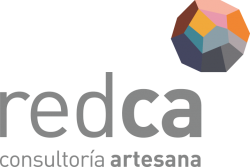 Actualización 02/06/2006.- También podéis leer reflexiones majas en El futuro del libro: «líquido» o «en red»…, en www.francispisani.net.
Actualización 02/06/2006.- También podéis leer reflexiones majas en El futuro del libro: «líquido» o «en red»…, en www.francispisani.net.
Me permito tomar prestado el título del libro de conversaciones de Mayte Pascual con Manuel Castells para recoger una pequeña reflexión de Steven Johnson en torno a los libros. Volvemos a reflexionar sobre esto de libros y tecnologías, que ya tratamos anteriormente. El asunto parte de un artículo de Kevin Kelly (de la revista Wired) en el New York Times: Scan This book! (registro gratuito requerido). El artículo es bastante largo (10 páginas) y dice, entre otras cosas, el colega KK hablando de Google Print:
But the technology that will bring us a planetary source of all written material will also, in the same gesture, transform the nature of what we now call the book and the libraries that hold them. The universal library and its «books» will be unlike any library or books we have known. Pushing us rapidly toward that Eden of everything, and away from the paradigm of the physical paper tome, is the hot technology of the search engine.
Y continúa escrutando cómo todo esto de la digitalización va a cambiar «este mundo en que vivimos»:
This is a very big library. But because of digital technology, you’ll be able to reach inside it from almost any device that sports a screen. From the days of Sumerian clay tablets till now, humans have «published» at least 32 million books, 750 million articles and essays, 25 million songs, 500 million images, 500,000 movies, 3 million videos, TV shows and short films and 100 billion public Web pages. All this material is currently contained in all the libraries and archives of the world. When fully digitized, the whole lot could be compressed (at current technological rates) onto 50 petabyte hard disks. Today you need a building about the size of a small-town library to house 50 petabytes. With tomorrow’s technology, it will all fit onto your iPod.
Y el hipertexto rondará por todos los lados, reorganizando nuestras vidas, porque ahora todo estará interconectado dentro de los libros digitales:
Once a book has been integrated into the new expanded library by means of this linking, its text will no longer be separate from the text in other books. For instance, today a serious nonfiction book will usually have a bibliography and some kind of footnotes. When books are deeply linked, you’ll be able to click on the title in any bibliography or any footnote and find the actual book referred to in the footnote. The books referenced in that book’s bibliography will themselves be available, and so you can hop through the library in the same way we hop through Web links, traveling from footnote to footnote to footnote until you reach the bottom of things.
De todas formas, me ha encantado la simplicidad con la que Steven Johnson asume que el cambio, como otras muchas veces, no debemos percibirlo en negativo:
The irony is here is that remixing, sampling, annotating and deconstructing texts is precisely what post-modern theory was supposed to be all about — to expose the historicity and ideology, the context and consciousness of the original work. You’d think theorists of contemporary art would be embracing the universal library idea, not dismissing it.
Technorati tags | books


1 comentario
¿Qué? ¿A que da vértigo, señores escritores y editores?